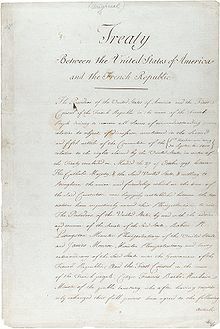“Punting the Pundits” is an Open Thread. It is a selection of editorials and opinions from around the news medium and the internet blogs. The intent is to provide a forum for your reactions and opinions, not just to the opinions presented, but to what ever you find important.
Thanks to ek hornbeck, click on the link and you can access all the past “Punting the Pundits”.
Follow us on Twitter @StarsHollowGzt
New York Times Editorial Board: Prosecute Torturers and Their Bosses
Since the day President Obama took office, he has failed to bring to justice anyone responsible for the torture of terrorism suspects – an official government program conceived and carried out in the years after the attacks of Sept. 11, 2001. [..]
Mr. Obama has said multiple times that “we need to look forward as opposed to looking backwards,” as though the two were incompatible. They are not. The nation cannot move forward in any meaningful way without coming to terms, legally and morally, with the abhorrent acts that were authorized, given a false patina of legality, and committed by American men and women from the highest levels of government on down. [..]
Starting a criminal investigation is not about payback; it is about ensuring that this never happens again and regaining the moral credibility to rebuke torture by other governments. Because of the Senate’s report, we now know the distance officials in the executive branch went to rationalize, and conceal, the crimes they wanted to commit. The question is whether the nation will stand by and allow the perpetrators of torture to have perpetual immunity for their actions.
Paul Krugman: Conquest Is for Losers
Putin, Neocons and the Great Illusion
More than a century has passed since Norman Angell, a British journalist and politician, published “The Great Illusion,” a treatise arguing that the age of conquest was or at least should be over. He didn’t predict an end to warfare, but he did argue that aggressive wars no longer made sense – that modern warfare impoverishes the victors as well as the vanquished.
He was right, but it’s apparently a hard lesson to absorb. Certainly Vladimir Putin never got the memo. And neither did our own neocons, whose acute case of Putin envy shows that they learned nothing from the Iraq debacle.
Angell’s case was simple: Plunder isn’t what it used to be. You can’t treat a modern society the way ancient Rome treated a conquered province without destroying the very wealth you’re trying to seize. And meanwhile, war or the threat of war, by disrupting trade and financial connections, inflicts large costs over and above the direct expense of maintaining and deploying armies. War makes you poorer and weaker, even if you win.
A cop pointing a gun at me as a “joke” and a cop getting a bullet in his head are no parallel, to be sure, but no one – cops included – should have to live even under the threat of violence, which is a form of violence itself.
So we must not let these brutal cop killings stop an honest movement built on affirming justice and peace.
We must not allow more police departments to adopt a ‘wartime’ mentality, just when we thought we were getting somewhere after the War on Terror military reenactments in Ferguson this summer.
We must not let protesters become labeled “domestic enemy combatants”, and we must not allow episodes where the script gets flipped to become an excuse to surveil black man even more.
And we must not give in to our most base anxieties, especially by indulging the fears of those who have guns and who are still, even after everything this year, expected to “serve and protect” us.
All of this violence is connected. We owe it to those taken from us too early – from the woman in Baltimore, to young black men in Ferguson and Ohio and beyond, and certainly to those two NYPD cops in their squad car in Brooklyn and their families – to break the American cycle of violence, even when it starts spinning in reverse.
Paul Brandeis Raushenbush: The False Choice of Protesting for Justice and Supporting Our Police
I’m one of the millions of New Yorkers who woke up heartbroken today thinking of NYPD officers Wenjian Liu and Rafael Ramos who were shot dead yesterday while sitting in their car in Brooklyn by Ismaaiyl Brinsley. [..]
Instead of having the deaths of Liu and Ramos further tear us apart, could this serve as a moment of bringing us together? Liu and Ramos are reminders to any who would demonize the police, that our law enforcement is made up of people of all races and backgrounds, who have families and who feel called to this duty to protect and serve.
The families of Eric Garner and Michael Brown were among the first to condemn the killing of Ramos and Liu last night. The protests around the #BlackLivesMatter movement was never against the police, but it was a call to acknowledge that we can do better as a society that continues to bear the scars of racism.
That effort must continue; we can and must do better as a nation. But it will only be successful if everyone comes together and recognizes one another as human beings, deserving of respect, dignity and life.
Instead of pitting the deaths of Liu and Ramos against Garner and Brown, we can join them together, understanding them as martyrs whose inspire us on both sides of the blue line to work for a more just, safe and united America.
Some political events mark their importance less by their content than by their timing, circumstances and presentation. That is the case for the Senate Intelligence Committee’s report on CIA torture. It contains little new to the attentive observer and none of that is of major consequence. It does, though, bear the imprimatur of the Senate — albeit with the abstention of Republicans. It appears at the culmination of a fierce White House campaign to prevent it from seeing the light of day. President Obama’s last minute “sky-is-falling” warnings that issuing the report would endanger the nation’s security was the exclamation point for a series of progressively more drastic measures that included the unconstitutional hacking of the Committee’s computers by the President and CIA Director John Brennan. [..]
The complicity of the White House in perpetuating the CIA mythology is the most troubling part of the story. President Obama went all the way down the line to prevent its exposure. Even now that the lie has been established between any reasonable doubt, he personally has thrown Brennan et al a life preserver in pronouncing himself neutral on the issue. In his official reaction to the Feinstein release the next day, Obama declared that that he will not take sides in the debate on whether torture worked. This is a striking example of Presidential irrationality — as well as irresponsibility. He is reacting as if a friend had asked him whether the Chicago Cubs should shell out $100 million+ for Jon Lester. That is a policy preference. Whether torture helped capture and kill OBL is a matter of fact — of truth or falsity. Leaving aside the inconvenient fact that he happens to be President of the United States, that that he already conspired with the CIA to block the report’s release and to prevent the ensuing embarrassment of the revelation that the torture program did not work (thereby already taking a position on the issue), one cannot logically abstain on a question of whether the sun rises in the East or the West.
Accountability for the country’s Intelligence agencies begins with the acceptance of responsibility in the White House.
From a maximum-security prison in Texas, former United States military analyst Ana Montes has been offering up bumper-sticker justifications for why she betrayed her country and spied on behalf of the Cuban government over the course of 17 years. “I believe that the morality of espionage is relative,” Montes wrote in a private letter to a friend last year. “The activity always betrays someone, and some observers will think that it is justified and others not, in every case.”
Montes had no idea how prophetic her words would be. While the 57-year-old American citizen remains locked up as one of the most damaging spies in US history, the Cuban-born spy who led American investigators to Montes was set free to worldwide applause last week, during a landmark thaw in US-Cuban relations. Several news outlets have since identified the Cuban double-agent as Rolando Sarraff Trujillo, and multiple US officials I’ve interviewed this past week have described him as a cryptographer whose code-breaking secrets have been the gift that keeps on giving to the CIA, NSA and FBI.



 Welcome to the Stars Hollow Gazette‘s
Welcome to the Stars Hollow Gazette‘s 
 In April 1803, the United States purchased from France the 828,000 square miles that had formerly been French Louisiana. The area was divided into two territories: the northern half was Louisiana Territory, the largely unsettled (though home to many Indians) frontier section that was later explored by Lewis and Clark; and the southern Orleans Territory, which was populated by Europeans.
In April 1803, the United States purchased from France the 828,000 square miles that had formerly been French Louisiana. The area was divided into two territories: the northern half was Louisiana Territory, the largely unsettled (though home to many Indians) frontier section that was later explored by Lewis and Clark; and the southern Orleans Territory, which was populated by Europeans.

Recent Comments